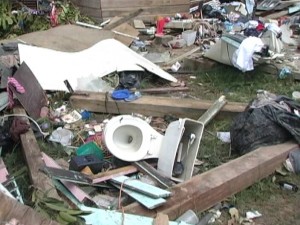Healthy Living explores post hurricane health risks
 This week, Healthy Living looks at the health risks posed by Hurricane Richard. As you know, the affected victims are still living in unhealthy environments, which are breeding grounds for diseases. We found out that two main concerns are over the safety of water and perishable foods.
This week, Healthy Living looks at the health risks posed by Hurricane Richard. As you know, the affected victims are still living in unhealthy environments, which are breeding grounds for diseases. We found out that two main concerns are over the safety of water and perishable foods.
Hurricane Richard set its sight on Belize late last week and on Sunday it made its impact with our coast. The damage assessment is well underway and the most agencies have begun responding with relief aid. But hurricanes and disasters can have lingering effects that put your health at risk. Senior Public Health Inspector for the Central Health Region, Mark Bernard tells us of the main health concerns post disaster.
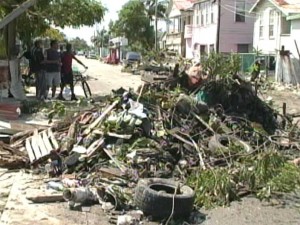 Mark Bernard, Senior Public health Inspector for Central Health Region
Mark Bernard, Senior Public health Inspector for Central Health Region
“One of the main concerns would be the safety of the water. So far we haven’t had any reports of diarrhoeal outbreaks. Of concern is you want to make sure the water is safe for people to drink. Secondly the food as you know the electricity has been off for a while. Certain items for example meats poultry, sausages and that sort of thing are likely to spoil. In hurricanes, the water comes up and it’s mixed with soakaway and sewage and the water is contaminated so when it comes in contact with food items such as flour, sugar and stuff like that it poses a threat.”
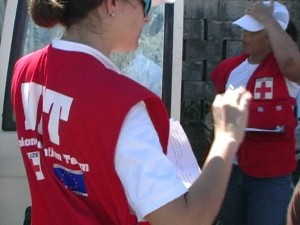 As witnessed by most in central and southern Belize, Richard brought its share of flood water and caused extended power outages. This put as at risk for water and food contamination. This is why the health department is out monitoring the situation in the stores and restaurants, although no one is reported sick, the health department has found stores with contaminated food.
As witnessed by most in central and southern Belize, Richard brought its share of flood water and caused extended power outages. This put as at risk for water and food contamination. This is why the health department is out monitoring the situation in the stores and restaurants, although no one is reported sick, the health department has found stores with contaminated food.
Mark Bernard
“As far as I am aware no we haven’t seen any significant increase in any kind of diarrhoeal outbreaks or anything like that. The health department we are going in to grocery and supermarkets and we are looking at products that may have been exposed to contamination. We look for products that may have not been kept at the proper temperature and we try to remove these. As we’ve mentioned before we’ve confiscated a number of items already that we are sure were not kept at the proper temperature during the storm.”
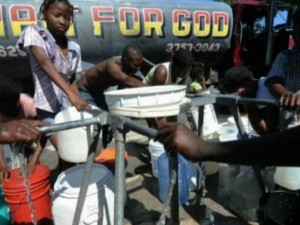 Although, the Health Department and other agencies continue to work monitoring the goods in the stores, Bernard says there are some steps we can take as consumers to prevent unnecessary contamination.
Although, the Health Department and other agencies continue to work monitoring the goods in the stores, Bernard says there are some steps we can take as consumers to prevent unnecessary contamination.
Mark Bernard
“Initially after a storm you should boil your drinking water for at least the recommendation is for ten minutes. Or you can add half a teaspoon of chlorine to it and let it sit for half an hour. And that’s half a teaspoon to five gallons of water. If you can buy from places which is an approved source. In other words if you can buy from a place that you know had back up generator during the storm then that’s number one. Two you need to look carefully at what you’re buying. 43 if you notice the poultry any kind of off-smell that’s an indication spoilage has occurred, if it’s discoloured perhaps green in color, if it’s slimy to touch and that sort of thing. Perhaps you should query with the person from the supermarket. Hopefully they’ll be honest to say I’m not going to sell that because current went off fro a long period of time and I’m not going to sell that.”
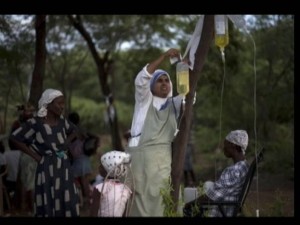 Another health risk associated with disasters is waterborne diseases like cholera. Haiti, for instance, is now battling to prevent an outbreak of cholera after thousands are reported ill and over 200 dead. While Belize has no indication of such an outbreak, it is not impossible. Bernard stresses the need for proper hygiene and early reporting.
Another health risk associated with disasters is waterborne diseases like cholera. Haiti, for instance, is now battling to prevent an outbreak of cholera after thousands are reported ill and over 200 dead. While Belize has no indication of such an outbreak, it is not impossible. Bernard stresses the need for proper hygiene and early reporting.
Mark Bernard
“One of the things that the public needs to do is to report any kind of diarrhoeal disease to the nearest hospital or clinic of Karl Heusner or any kind of medical facility.”
Symptoms of contamination include diarrhoea, vomiting, stomach pains or fever.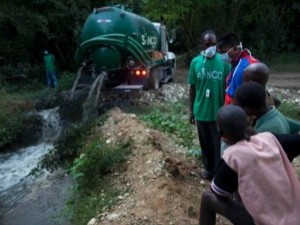
Mark Bernard
“There’s a saying in public health: when in doubt throw it out. It’s best you don’t use it. It also goes for the domestic level. Because you might have food in your refridge it might be there for twenty-four hours without electricity then that food is not good to consume.”
As for the Pre-Richard health concern of dengue, Bernard ensures that spraying schedules will be resumed now that the storm has passed and that they have seen a decrease in the number of cases in dengue in recent weeks.
